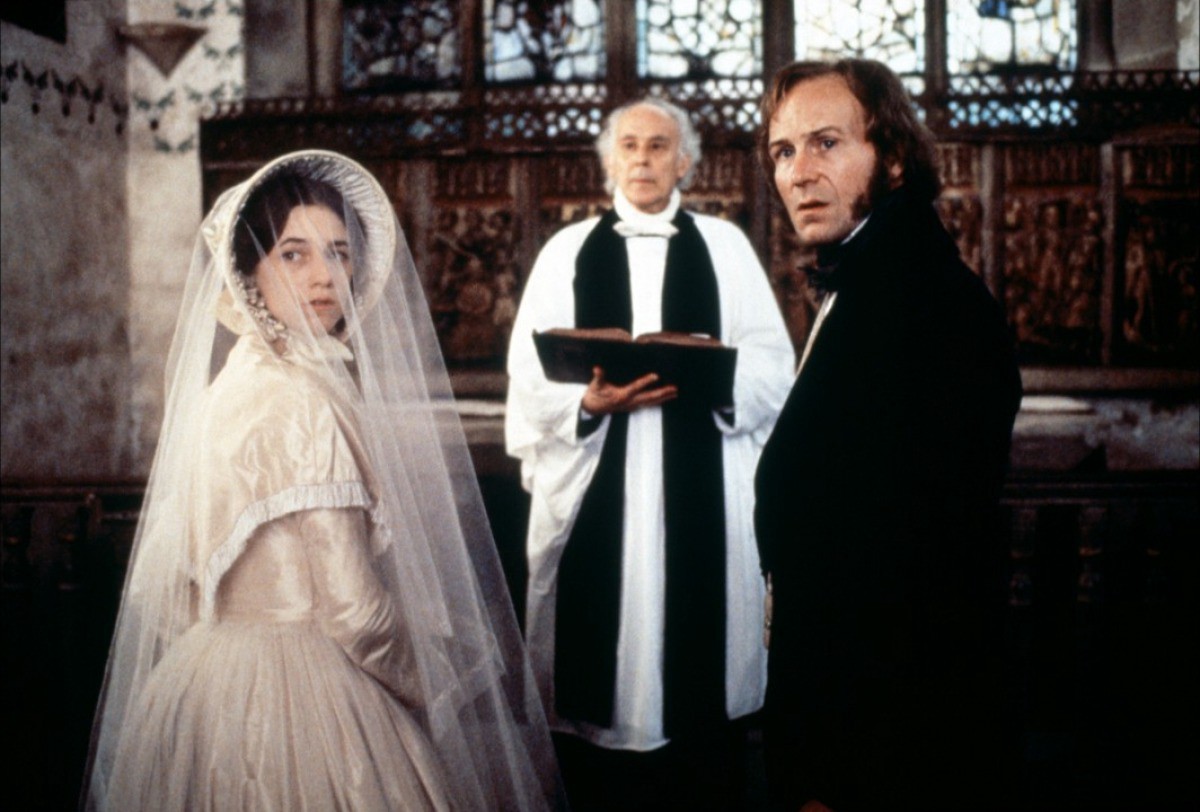Reading Lists
11 of the Worst Weddings in Literature
Jilted wives, drunk uncles, and seagreen chiffon — it’s wedding season!

It’s wedding season. These days, that doesn’t mean a few DJ-ed buffets at the local rental hall. Going to a wedding, more and more often, means getting on a plane to some far-flung destination, driving to the middle of nowhere to drink specialty cocktails in a rustic chic barn, and taking silly-sexy pictures in a photo booth so as to capture the one use of your very expensive bridesmaid dress or groomsmen’s suit.
If you’re feeling exhausted, bored, or financially depleted, take heart — literature has come up with weddings that can far outweigh the horror of the parties you’ve been to. These 11 novels remind us that, at the very least, we can be happy that the bride and groom came willingly and without the baggage of a still-living spouse, and the guests, while drunk, were not also out to kill.
There is something perversely satisfying about seeing an event that is so heavy with expectations get trashed, and in these cases, it is illuminating too. These authors don’t accept weddings as the flower-strewn manifestation of assured romantic bliss. They take one of humanity’s oldest customs and scrutinize and question it, and the results, while not always pretty, are always interesting.
A Storm of Swords by George R. R. Martin
Nascent fans of Game of Thrones hear rumors about the crazy thing that happens in the third installment of A Song of Fire and Ice long before they actually get around to reading it. With that kind of hype, you’d think that the event in question, the Red Wedding, wouldn’t live up to expectations, but boy does it. Without giving too much away, it’s a blood-bath at the Frey’s castle, and in true Martin fashion, the characters who are ruthlessly murdered are the very ones who you’ve been cheering on for hundreds of pages.
My Brilliant Friend by Elena Ferrante
The first book of Ferrante’s Neapolitan series concludes with Lila’s wedding to Stefano Carracci, who is the heir to the local grocery store and, in what should have been a huge red flag, the son of Don Achille, the man who terrified Lila and Elena as children. Before the boozy wedding feast is over, young Lila — and she is still so very young — realizes that Stefano is just like his father and the wedding was a terrible mistake, one that will haunt her for the rest of her life.
A Thousand Splendid Suns by Khaled Hosseini
As a girl, Mariam also marries an abusive man, though she had even less say than Lila in the decision. Hers is a forced marriage to a shoemaker named Rasheed. On the day of her wedding, she sees her future husband for the first time when she holds up a mirror under her wedding veil. She’s upset to find Rasheed is unattractive, though he becomes even more so once she knows his personality.
Chronicle of a Death Foretold by Gabriel García Marquez
Just hours after their marriage, Bayardo San Roman returns his bride, Angela Vicario, to her parents, claiming that she’s been tainted by a lover. Angela gives up the name of the man who “stained” her, Santiago Nasar, and Angela’s brothers announce that they are going to kill him in revenge. Sure, it’s awkward to return the wedding presents, but it seems like cold-blooded murder might be going a tad overboard.
Seating Arrangements by Maggie Shipstead
Weddings have become big, expensive circuses, something that Maggie Shipstead uses to great comedic effect in her novel of a snobby New England wedding gone wrong. Daphne Van Meter is marrying Greyson Duff at her family’s island estate, and though Daphne’s parents have done their best to ensure that this will be the pristine social event of the season, the wedding is thrown off course by drunkenness, lust, and other wonderfully bad behavior.
The Emperor’s Children by Claire Messud
Messud also has a keen eye for the ridiculous nature of modern weddings. Chapter 51 of her novel is titled “‘Vows by Lisa Solomon’, Special to the New York Times” and is a satirical (yet also totally plausible) article that recounts the wedding of two of the book’s main characters. The wedding typifies everything that a certain type of couple might want, from a “a profusion of calla lilies” to “seafoam chiffon.”
Jane Eyre by Charlotte Brontë
The last thing you want to hear when you’re standing at the alter about to get married is that your intended already has a spouse. But such is Jane’s lot when one of her guests shouts out, “I declare the existence of an impediment,” forcing Mr. Rochester to admit that he’s been harboring a wife in his attic. Rochester’s defense is that his wife is completely crazy, but Jane’s not having it, and she leaves Thornfield, rendering herself penniless and homeless in the process.
Atonement by Ian McEwan
As a young girl, Briony mistakes her sister’s flirting with one of their family estate’s groundskeepers for something more, and as a result accuses the wrong man of raping her cousin Lola. McEwan’s Booker Prize-shortlisted novel explores the repercussions of this event, including a terrible wedding where Lola marries her rapist, though only Briony knows the truth, and finds it too late to make amends.
Goodbye, Columbus by Philip Roth
Roth’s 1959, National Book Award-winning novella follows a working class Jewish man named Neil Klugman through his relationship with an affluent suburban girl named Brenda Patimkin. The novel probes the two families’ class divide, including at the generally awkward wedding which includes soused partiers, intimidating relatives, and a man who keeps publicly grabbing his wife’s boobs.
The Age of Innocence by Edith Wharton
New York Society is thrilled when Newland Archer marries the acceptably demure May Wellend. But Wharton, being Wharton, exposes the sham of following society’s rules for their own sake. Newland is actually hopelessly in love with May’s ‘exotic,’ sexier cousin, Countess Ellen Olenska, and his mind is on Ellen throughout the whole wedding, though he manages to snap-to in time to say “I do.”
Great Expectations by Charles Dickens
This is the most famous literary wedding that never actually happened. A lot of prep did, though, as Ms. Havisham’s grand mansion bears witness to it, still laid out with tables of uneaten cake and decayed flowers. Ms. Havisham also continues to wear her moth-eaten wedding dress, though exactly how long it’s been since she was jilted she can’t say, because the clocks all stopped at the time her heart broke: twenty minutes to nine.








